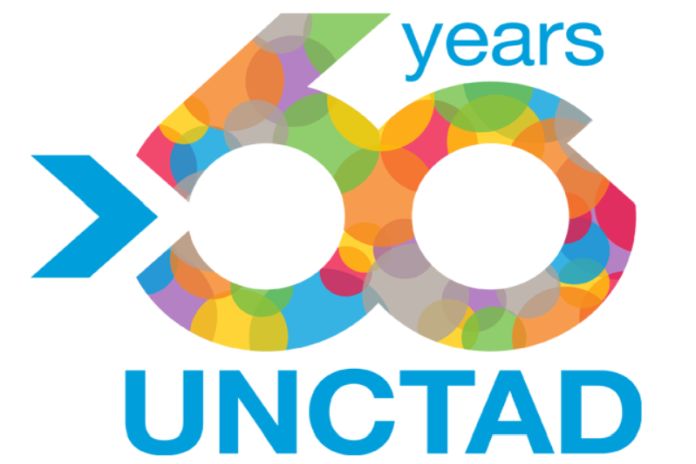- Six decades of impact: Marking 60 years of UN Trade and Development (UNCTAD)
- Convening global leaders: UNCTAD brings together world leaders to shape a vision for inclusive prosperity in a complex global landscape
- High-level participation: featuring the UN Secretary-General, six heads of state and government and 28 Ministers of Foreign Affairs and Trade
GENEVA, Switzerland – The 60th anniversary of UN Trade and Development (UNCTAD) will center on the Global Leaders Forum themed “Charting a new development course in a changing world” (12-14 June, Palais de Nations, Geneva).
The 60th anniversary comes at a time of cascading crisis, with disruptions of global trade, soaring debt, and climate change severely impacting developing countries. It represents “an opportunity to reflect on the lessons learned over the past six decades and forge a new path forward, with a shared vision for the future,” UN trade and development secretary-general Rebeca Grynspan said.
Exploring new strategies for development, the Global Leaders Forum will focus on integrated treatment of trade and development, and the interrelated issues of finance, technology, investment and sustainable development.
Secretary-General Grynspan will be joined by UN secretary-general António Guterres, and the president of the 78th session of the UN General Assembly, Dennis Francis. The forum will also feature six heads of state and government and 28 government ministers of trade and foreign affairs from all world regions. Additionally, civil society representatives, leading economists, and international organizations will participate.
Forward together with new development thinking
The forum aims to inspire fresh perspectives on development thinking to address the complexities of “poly globalization,” characterized by growing economic diversity and decentralization, amidst the rising interdependence of countries on a global scale.
Discussions will prioritize the needs of developing nations, with a particular emphasis on least developed countries, small island developing states and landlocked developing countries.
These conversations will address urgent trade and development issues, such as:
- Making industrial policy work for trade and development;
- Shaping a digital future for people and planet;
- Preparing for the economies of tomorrow: The urgency of options and actions;
- Reshaping foreign direct investment and global value chains for development;
- Globalization: Development and repositioning in the changing global context.
Six decades of action and change
For six decades, UN Trade and Development has stood as a staunch advocate for developing countries, providing crucial support through cutting-edge research and analysis, technical cooperation, and consensus-building.
Ahead of its 60th anniversary, the organization rebranded to “UN Trade and Development (UNCTAD)”, underscoring its transformative approach and commitment to amplifying the voice of developing economies in global trade, economic and development policy dialogues.
A new development course
Established in 1964, UNCTAD was founded with the aim of ensuring the inclusivity of globalization. Upholding this mission in the present day demands a significant shift in perspective.
Over the past six decades, the global economy has witnessed the rise of the Global South, the emergence of a vast digital economy and remarkable strides in reducing global poverty and hunger.
However, simultaneous with these advancements, there has been a disturbing rise in inequalities within and among countries, a heightened frequency of economic fluctuations in trade and finance, and a mounting threat of climate change, particularly affecting those nations least responsible for its onset.
The structures of global economic governance have lagged behind these shifts, leading to a contradiction at the heart of globalization.
“As we adapt to changing times, charting a new development course provides a framework for building a future that is resilient, equitable and sustainable,” UN trade and development secretary-general Rebeca Grynspan said.





